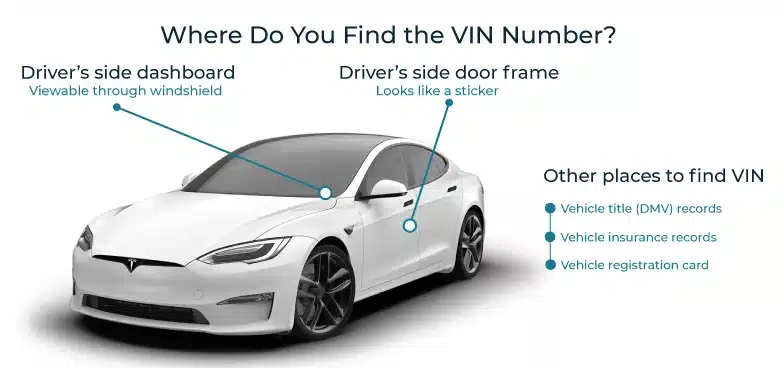
Mercedes-Benz Recall Check
Ensure your safety with a quick Mercedes-Benz Recall Check. Enter your VIN to uncover open recalls, potential risks, and available fixes. Get dealer guidance and free fixes to keep your vehicle in top condition. Act now for safe driving.
What is a Mercedes-Benz Recall?
Mercedes-Benz has long been a symbol of luxury and innovation, delivering vehicles that offer unmatched performance, comfort, and safety. Each vehicle showcases the brand’s engineering excellence, from the opulent S-Class to the agile C-Class.
However, even with such high standards, Mercedes-Benz vehicles are not immune to recalls. A recall occurs when a defect or safety issue is identified, which can potentially affect the vehicle’s performance or safety. Recalls can address issues like brake malfunctions or faulty airbags. Mercedes-Benz ensures that owners of affected vehicles receive free repairs to rectify these issues, emphasizing the company’s commitment to safety and customer satisfaction.
Why You Should Check the Mercedes-Benz Recall History?
Performing a Mercedes-Benz Recall Check is essential for used car buyers. It helps identify any safety concerns or defects that may be present in the vehicle, ensuring that you’re fully informed before making a purchase. Knowing whether a recall exists allows you to address the issue before it becomes a problem, promoting both safety and reliability. Below are some reasons why you should check the recall:
Avoid Unsafe Mercedes-Benz
Mercedes-Benz recalls occur when a vehicle has defects or fails to meet safety standards, ranging from minor issues to serious risks. Act quickly to resolve recalls, preventing accidents and ensuring free repairs. Stay safe and drive with confidence.
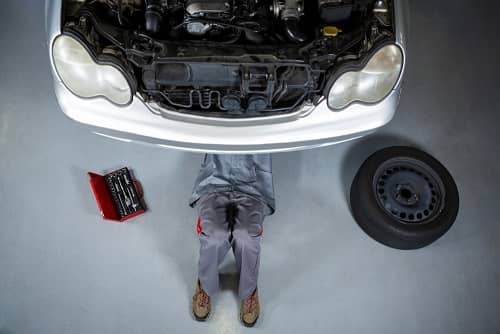

Check Common Safety-Related Issues
A Mercedes-Benz recall check helps identify common safety issues like braking, electrical malfunctions, steering problems, and fuel delivery defects. Some issues may not be visible right away, but could become dangerous over time.
By checking for recalls, you ensure your vehicle is safe, compliant, and reliable, providing peace of mind and saving you time and money by avoiding unexpected repairs.
Compliance
A Mercedes-Benz recall check is vital for both safety and compliance. An open recall indicates a vehicle may not meet federal safety standards, which could lead to legal complications. Staying proactive helps avoid such risks, ensuring free repairs and protecting your car’s resale value. Addressing recalls also ensures your vehicle is safe to drive and keeps you and your passengers protected.

How to Run Mercedes-Benz Recalls?
Discovering your Mercedes-Benz recall report is just a minute away! Follow these easy steps to get the information you need quickly and effortlessly:

Locate Your Mercedes-Benz VIN
Locate your Mercedes-Benz VIN on the driver’s side dashboard, door jamb, or find it on your registration or insurance card. Our recall check works for all Mercedes-Benz vehicles, from electric models, sedans, SUVs, and even classic cars.


Fill in the Form
Enter your Mercedes-Benz VIN above to begin the recall check. No VIN? Simply use your license plate number, and we’ll instantly generate a report for you.


Receive Your Mercedes-Benz Recall Report
It only takes a moment for your report to be prepared. Once complete, your Mercedes-Benz recall details will be available for download.
What is on the Mercedes-Benz Recall Check?
The Mercedes-Benz recall check from Detailed Vehicle History reveals crucial details on safety recalls for your vehicle, showing the recall announcement date, the component impacted, and the recommended steps to resolve the issue. Read further for a comprehensive breakdown of your vehicle’s recall history.
- Next step for the affected Mercedes-Benz: Confirm if your Mercedes-Benz is listed under the recall and schedule repairs. With a complete Vehicle Report, you’ll also see past recalls and repair status.
- Date of recalls: Indicates when Mercedes-Benz and the National Highway Traffic Safety Administration (NHTSA) issued the recall.
- Affected Component: Displays the specific part of your Mercedes-Benz that is impacted by the recall, providing clear insight into the defect and the repair process required.
- Consequences: Outlines the potential dangers and costs associated with ignoring a recall on your Mercedes-Benz.
A Mercedes-Benz vehicle history report also includes a title brand check, mileage records, lien/loan records, Mercedes-Benz specifications, and more. Review the records below for more details:
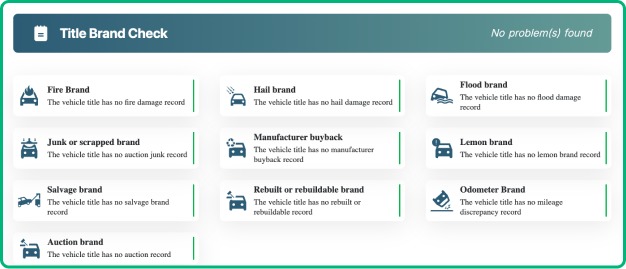
Title Brand Check
Ensure your Mercedes-Benz doesn’t have a branded title. Our report helps identify salvage, flood, rebuilt, fire, and other title brands, ensuring you make an informed decision before purchase.
Mileage Records
Verify the odometer reading of your Mercedes-Benz to ensure it hasn’t been rolled back. Our detailed reports help you spot any tampered odometer readings, giving you peace of mind before purchase.
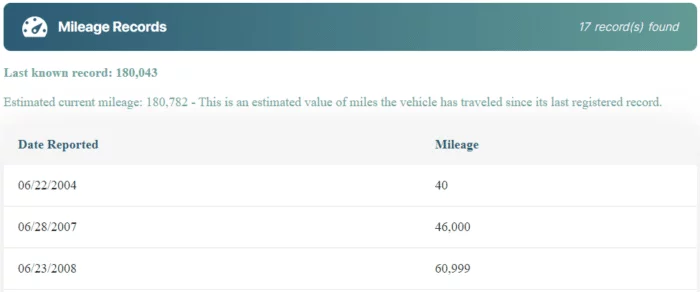
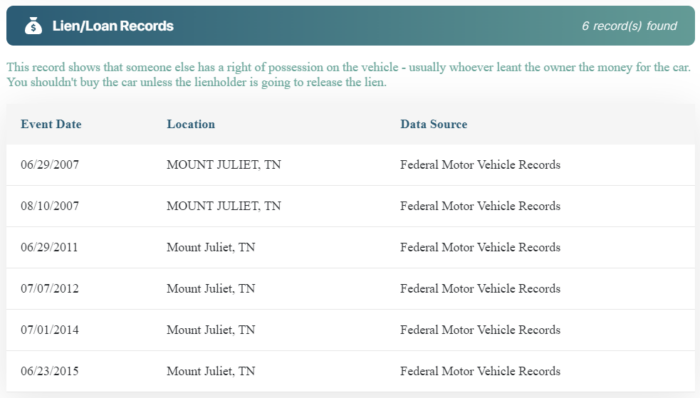
Lien/Loan Records
Check for any existing lien or loan records on your Mercedes-Benz. Ensuring the vehicle is free of financial claims prevents potential repossession and complications after purchase.
Mercedes-Benz Specifications
Find essential details for your Mercedes-Benz, including the year, make, model, trim, engine specs, and more. This helps you confirm if the vehicle matches the seller’s description.
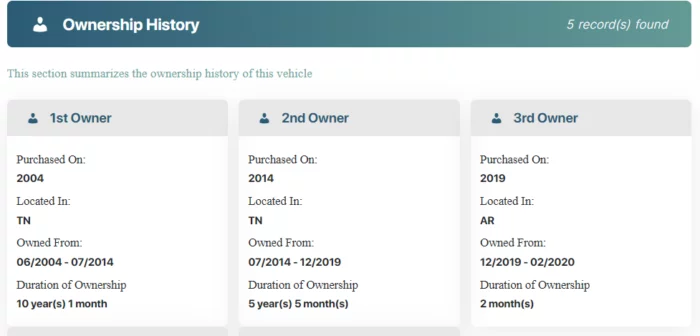
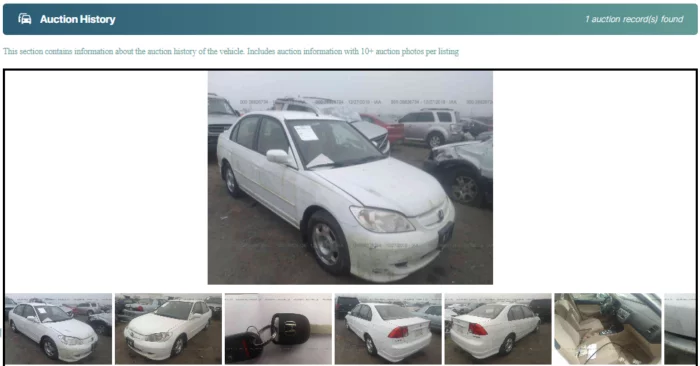
Auction History
Find detailed information about your Mercedes-Benz auction history, including auction dates, sale prices, and available +10 images. This helps you understand the car’s sales journey and its condition.
Theft Records
Find out if your Mercedes-Benz has been involved in any theft incidents. The detailed report includes theft dates, locations, and recovery status, ensuring you’re fully informed before buying.

Common Issues Leading to Mercedes-Benz Recall
Mercedes-Benz vehicles face recalls due to a range of safety and reliability concerns. Critical issues include steering and airbag malfunctions, while electrical system failures and starter defects are also common. Additionally, certain models have faced recalls for diesel emission problems.
Below are the details behind the Mercedes-Benz recall notices.
Critical Safety Issues
Steering Control Defects
In August 2025, Mercedes-Benz recalled more than 3,700 vehicles, including 2023–2026 GLC SUVs and 2023–2025 EQE electric sedans, due to a critical steering issue. The recall was initiated after a driver reported unusual steering noises, leading to an investigation that uncovered a production oversight. The bolt securing the steering coupling might not have been properly tightened, potentially causing the coupling to loosen over time. This defect increases the risk of losing steering control, posing a serious safety hazard.
Mercedes-Benz is addressing the issue by reworking the bolt connection at no cost to owners. Dealers will inspect and, if necessary, tighten or replace the affected components. Owners will be notified starting October 17, 2025.
Electrical System Overheating
A recall affects over 116,000 Mercedes-Benz SUVs (2019–2024) due to a 48-volt ground connection issue beneath the passenger seat. The defect poses a fire risk. Models impacted include GLE350, GLE450, GLE580, GLS450, GLS580, AMG GLE53, AMG GLE63S, AMG GLS63, and Maybach GLS600. Owners should schedule free repairs with authorized dealers.
Airbag Deployment Failures
Mercedes-Benz has issued a recall for certain 2024 GLE and GLB SUVs due to an airbag deployment failure. The issue stems from faulty inflators in the airbag system that may fail to deploy properly during a collision, which could result in serious injury or death.
The recall includes specific vehicles manufactured between 2021 and 2024. Mercedes-Benz is advising owners to take immediate action and visit their dealerships for free repairs to resolve the issue.
Moderate Safety Concerns
Emergency Call System (eCall) Malfunctions
Mercedes-Benz recalled nearly 1.3 million vehicles in 2021 due to a malfunction in the Emergency Call (eCall) system. This system was found to have software issues in certain 2016–2021 models, including the Mercedes-Benz C-Class and GLC.
When activated, the eCall temporary power disruption during a crash could cause the system to transmit the wrong vehicle location, potentially delaying the arrival of first responders. Mercedes-Benz is providing a software update to fix the issue. Owners should act quickly to ensure their vehicles are properly updated.
Other Notable Issues
Starter Assembly Defects
In April 2025, Mercedes-Benz issued a recall (NHTSA ID: 25V-240) for certain 2024 E-Class sedans, including E 350 4MATIC, E 450 4MATIC All-Terrain, and E 450 4MATIC models. The recall concerns improperly secured 12V and 48V ground connections in the electrical wiring harness, which could cause overheating and potentially lead to a fire hazard.
Owners of affected vehicles are encouraged to visit a Mercedes-Benz dealer for a free inspection and repair. To verify if your vehicle is part of this recall, enter your VIN in the recall check tool.
Diesel Emissions Software Updates
In October 2024, a recall was issued for certain Mercedes-Benz models, including the 2021-2023 S580 and Maybach S580 sedans, due to an engine overheating issue caused by a software malfunction (NHTSA ID: 24V-704). The glitch could result in engine overheat or stall in the event of a mechanical Camtronic failure, creating a potential safety hazard. Dealers were instructed to update the engine control unit software, free of charge.
Understanding the Mercedes-Benz Recall Process
The NHTSA begins the recall process by investigating reported issues. If a defect is found, the manufacturer must issue a recall. See the steps of their process below
Report the Problem
Notice a defect on your Mercedes-Benz? Submit a complaint to NHTSA. Each entry is logged and compared across VINs. Multiple similar reports signal a safety defect and may trigger a formal investigation.
Investigation
Once a complaint is submitted, the NHTSA follows a multi-step process to determine whether a recall is necessary.
- Screening: Complaints from vehicle owners are examined for credibility and evidence to decide if further investigation is justified
- Analysis: Defect petitions are reviewed in detail. If denied, the decision and reasoning are publicly posted in the Federal Register.
- Investigate the Issues: When Mercedes-Benz’s safety concerns are confirmed, NHTSA launches a formal investigation, ending in either no defect or a recall.
- Recall Management: NHTSA ensures owners are notified and monitors repair completion rates.
Recalls
A safety recall means the manufacturer must inform owners and correct the problem. Recalls happen when a vehicle or component is unsafe or doesn’t meet regulations. Most are voluntary, and manufacturers are required to repair, replace, refund, or buy back the affected vehicle.
How Mercedes-Benz Vehicle Recalls Are Handled?
Mercedes-Benz recalls involve a coordinated effort between the automaker, NHTSA, and vehicle owners. When a defect is found, they work together to inform owners and ensure necessary repairs are carried out to maintain vehicle safety.
Automaker Role
When Mercedes-Benz vehicles face a recall, the manufacturer works closely with NHTSA to identify the issue, notify owners, and facilitate repairs.
As part of the recall process, Mercedes-Benz takes responsibility for ensuring that defective vehicles are fixed free of charge. Whether it’s a minor issue or a major safety concern, the automaker ensures that recalls are handled efficiently, prioritizing the safety of both the vehicle owner and passengers.
NHTSA’s Role
NHTSA plays an essential role in the Mercedes-Benz recall process. When a safety issue arises, NHTSA works with the automaker to ensure that affected vehicles are recalled and repaired.
NHTSA oversees investigations into defects, ensures compliance with safety standards, and helps facilitate communication between Mercedes-Benz and vehicle owners. This partnership ensures that recalls are handled properly and necessary repairs are made to maintain the safety of the vehicles on the road.
Your Role as the Vehicle Owner
As a Mercedes-Benz vehicle owner, it’s important to stay informed about recalls. When a recall is issued, it’s your responsibility to respond quickly, ensuring that your vehicle is repaired or inspected.
You can check if your vehicle is affected by entering your VIN on the Mercedes-Benz Recall Check page from Detailed Vehicle History. Once confirmed, contact your local dealer to schedule necessary repairs, which are usually provided at no charge. Your cooperation helps maintain safety standards, ensuring both your safety and others on the road.
Get Mercedes-Benz Window Sticker by VIN
Unlock the full story of your Mercedes-Benz by getting the window sticker using your VIN or license plate. It reveals everything from exact specifications, trim levels, and factory-installed options to the original MSRP, interior/exterior colors, and safety equipment.
Whether you’re buying a pre-owned Mercedes-Benz or checking your own, this detailed label helps you verify authenticity, compare features, and avoid costly surprises. Confirm your vehicle’s value and ensure it matches the seller’s description. Experience peace of mind with your Mercedes-Benz window sticker today!

Why Use Detailed Vehicle History to Check Mercedes-Benz Recall?
A Mercedes-Benz is a symbol of luxury and precision, and its history should be treated with the same care. Our detailed vehicle history report not only provides recall information but also insights into ownership transfers, accident history, title checks, lien status, and more.
With just your VIN or license plate, you can gain full transparency, confirm safety, and avoid unexpected issues. Don’t let hidden risks affect your investment. Start your Mercedes-Benz recall check today!
Recall Check For Others Manufacturers
FAQ about Mercedes-Benz Recalls Check
How do I check for a recall on my Mercedes-Benz?
To check for recalls, visit the NHTSA website and enter your VIN. For a more comprehensive report, use Detailed Vehicle History, not only by VIN but also with the license plate to get insights on recalls, defects, title brand check, mileage records, lien/loan records, and more for your specific Mercedes-Benz.
Can I still drive my Mercedes-Benz if it has an open recall?
Driving a Mercedes-Benz with an open recall can put you at risk. It’s best to get the issue fixed at no cost at an authorized dealership.
Is it safe to ignore a Mercedes-Benz recall?
Ignoring a Mercedes-Benz recall can lead to serious safety risks, liability, and insurance complications. Get your vehicle fixed for free at the authorized dealer. Use Detailed Vehicle History to check for any open recalls quickly.
What happens if my Mercedes-Benz can’t be fixed due to a recall
In rare cases where a recall can’t be repaired, Mercedes-Benz could provide a replacement, refund, or buyback. Keep records and escalate to Mercedes-Benz if needed. You may also have rights under state lemon laws.
Does Mercedes-Benz fix recalls for free?
Mercedes-Benz fixes recalls at no cost. Federal law mandates free repairs for safety-related recalls within 15 years from the original sale date. For non-safety recalls, repair coverage may vary.
Can dealerships sell Mercedes-Benz with open recalls?
Dealers can’t sell new Mercedes-Benz cars with open recalls. Federal law mandates that all safety recalls must be fixed before a new vehicle can be sold. However, used cars with open recalls can be sold, but dealerships must disclose the recall.
Can I bring my Mercedes-Benz to any dealership for a recall fix?
Yes, any authorized Mercedes-Benz dealership can handle your recall fix. They’re compensated by the manufacturer, and all repairs are free
What is the difference between a safety recall and a non-safety recall for Mercedes-Benz?
Safety recalls address serious defects that pose a safety risk, like faulty brakes or wiring. These repairs are free and mandatory.
Non-safety recalls cover less critical issues, ike performance or emissions, often addressed voluntarily by the manufacturer.
What is the biggest issue with Mercedes-Benz recalls?
Up to September 2025, the most significant concerns in Mercedes-Benz recalls are ongoing electrical issues and fire defects.
What is the safest Mercedes-Benz car to buy?
As of September 2025, Mercedes-Benz offers several safe options, including the 2025 C-Class, GLC SUV, E-Class, and GLE SUV, all earning top safety awards from IIHS and Euro NCAP. These models feature advanced safety tech like PRE-SAFE® and Active Brake Assist.

